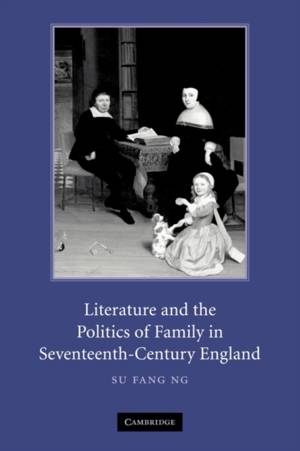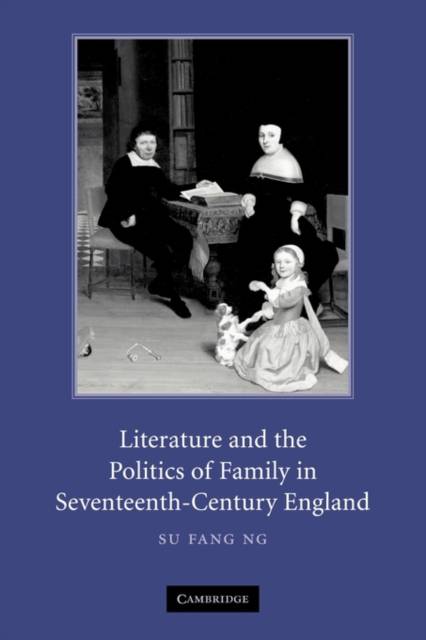
- Afhalen na 1 uur in een winkel met voorraad
- Gratis thuislevering in België vanaf € 30
- Ruim aanbod met 7 miljoen producten
- Afhalen na 1 uur in een winkel met voorraad
- Gratis thuislevering in België vanaf € 30
- Ruim aanbod met 7 miljoen producten
Zoeken
Literature and the Politics of Family in Seventeenth-Century England
Su Fang Ng, Ng Su Fang
Paperback | Engels
€ 64,95
+ 129 punten
Uitvoering
Omschrijving
A common literary language linked royal absolutism to radical religion and republicanism in seventeenth-century England. Authors from both sides of the Civil Wars, including Milton, Hobbes, Margaret Cavendish, and the Quakers, adapted the analogy between family and state to support radically different visions of political community. They used family metaphors to debate the limits of political authority, rethink gender roles, and imagine community in a period of social and political upheaval. While critical attention has focused on how the common analogy linking father and king, family and state, bolstered royal and paternal claims to authority and obedience, its meaning was in fact intensely contested. In this wide-ranging study, Su Fang Ng analyses the language and metaphors used to describe the relationship between politics and the family in both literary and political writings and offers a fresh perspective on how seventeenth-century literature reflected as well as influenced political thought.
Specificaties
Betrokkenen
- Auteur(s):
- Uitgeverij:
Inhoud
- Aantal bladzijden:
- 248
- Taal:
- Engels
Eigenschappen
- Productcode (EAN):
- 9780521123723
- Verschijningsdatum:
- 17/12/2009
- Uitvoering:
- Paperback
- Formaat:
- Trade paperback (VS)
- Afmetingen:
- 152 mm x 229 mm
- Gewicht:
- 367 g

Alleen bij Standaard Boekhandel
+ 129 punten op je klantenkaart van Standaard Boekhandel
Beoordelingen
We publiceren alleen reviews die voldoen aan de voorwaarden voor reviews. Bekijk onze voorwaarden voor reviews.







